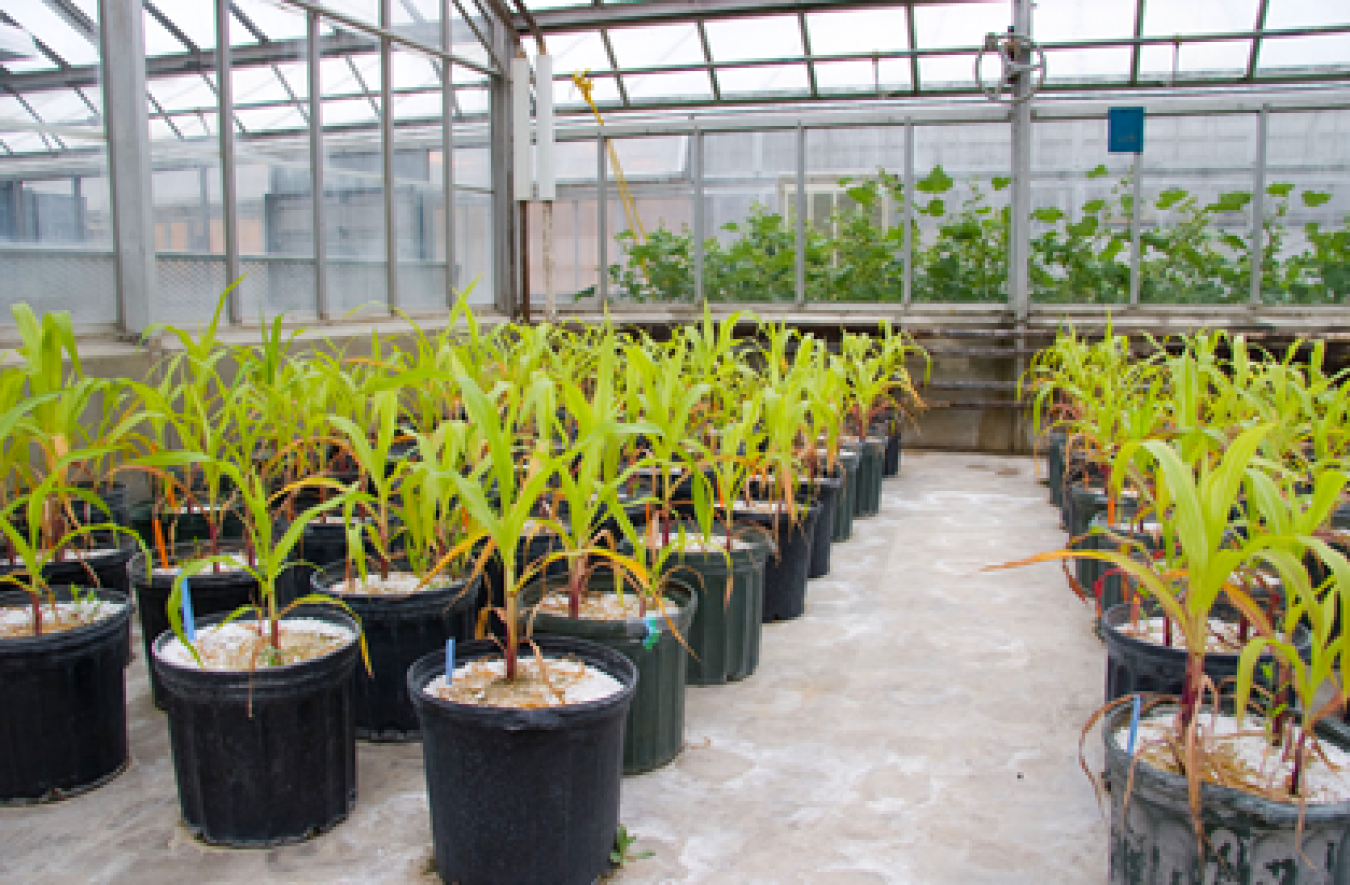
Bioenergy research studies how to use crops and other agricultural materials to make biofuels and other bioproducts. Biomass energy would improve energy security. It would reduce the use of toxic chemicals. It would bring jobs to rural areas and improve our trade balance. To achieve these benefits, bioenergy research integrates many disciplines that include agronomy, biology, chemistry, engineering, and economics. These disciplines work together to advance research on the sustainable production, collection, and conversion of biomass.
Scientists use insights from studies of plants and microorganisms as the basis for bioenergy development. These studies are based on genomics, which studies the structure, function, evolution, and mapping of the genes in organisms. Scientists use this knowledge to develop plant species with modified traits, such as altered cell walls that make them easier to break down, making them useful as raw material for bioenergy production. Scientists can also modify the chemical reactions in a microorganism. These alterations allow microorganisms to convert compounds derived from plants into fuels and chemicals.
DOE Office of Science & Bioenergy Research
DOE’s Office of Science seeks a basic understanding of plant and microbial biology to unlock Nature’s potential to produce renewable fuels and chemicals. Scientists must identify promising plant and microbial species as well as study how to promote the sustainable growth of bioenergy crops. They need to research modifying plants and microorganisms to support beneficial traits. In addition, they need to integrate these efforts to produce biofuel and bioproducts. These efforts are in progress in the DOE Bioenergy Research Centers. These four centers are working to lay the scientific groundwork for a new bio-based economy. Their goal is to coordinate with applied researchers to help develop a range of new products and fuels derived directly from renewable, nonfood biomass.
Bioenergy Research Facts
- Sustainability research conducts long-term studies of bioenergy crop production systems and analyses for biomass supply.
- Feedstock development research designs dedicated bioenergy crops and engineers plants for efficient conversion into fuels and products.
- Plant deconstruction research covers processes that help degrade and separate biomass to facilitate conversion to bioproducts.
- Conversion research focuses on developing new microorganisms that convert biomass materials into fuels, biomass fuels that easily integrate with existing gasoline and other conventional fuel infrastructure, and high-throughput biology tools to scale up biomass conversion.
Resources & Related Terms
- U.S. DOE Bioenergy Research Centers
- U.S. Department of Energy Bioenergy Research Centers: 2020 Program Update
- Big Help from Small Microbes: Electron Transfers to Produce Fuels and Fertilizer
- Oxygen: The Jekyll and Hyde of Biofuels
- Driving to Great: Science and the Journey to Waste-Free Biodiesel
- Behind the Scenes: How Fungi Make Nutrients Available to the World
- Science Highlight: Enhancing Land Surface Models to Grow Perennial Bioenergy Crops
Scientific terms can be confusing. DOE Explains offers straightforward explanations of key words and concepts in fundamental science. It also describes how these concepts apply to the work that the Department of Energy’s Office of Science conducts as it helps the United States excel in research across the scientific spectrum.
